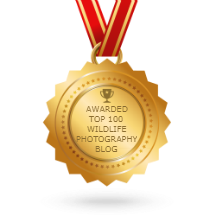Like many things in life I feel there are stages and evolution with photography that we all go through. I remember when I first started in Wildlife Photography it was all about getting close to my subjects and capturing those detailed portraits. Don’t get me wrong I still love to capture that style of image but over the past 2 years I have slowly grown an obsession and a love for the more loose/wider compositions. Ones that show more of the environment but yet still showcases your subject in a beautiful and pleasing way.
In my eyes one of the best bird photographers out there that achieves this effect like no other is Ray Hennessy. I remember the first time I saw his work and it just blew me away. His ability to capture a scene in such beautiful light and have his subject smaller in the frame yet have the subject still stand out in all is glory was just amazing to me. It was in that moment that I realized this was the inspiration I needed as I think I was at a point in my photography where I wanted a change.
Or at least a new challenge…
So began my journey to explorer new compositions…I needed to learn to pull back and not feel like I had to be close to my subjects but to find a way to capture the scene as a whole.
During this journey I have come to realize there are a few elements that are needed for this style of Wildlife photography to work well. Please keep in mind I am new to this and in no way have I perfected this craft. I still have more exploring to do and more to learn but below are some things to consider when trying to capture images in this way
Space
First and probably the most important one I feel is space. You generally need an area that is open or at least an area where your subject stands out from its surroundings. Having to many elements in your image can be distracting and take away from your subject since it will be so small in the frame.
Background
Like any great image your background is key. You want to have a background that provides interest but more importantly you want to have one that is distant. Since we will be shooting in a more loose or wide composition you will in turn be capturing more of the surroundings. We want those surroundings to be soft and pleasing in the overall image so having one that is quite a distant from the main subject will help achieve the look we are after.
Foreground Interest
When possible try to add some foreground interest in your image. What I mean by this is try to find an element in your scene that is close to your lens. Since you will be focused on your subject the element; for example a bush like the one in the image below, will become blurry, this creates a more secretive/peekaboo effect to the over all scene.
it also makes an image that would other wise seem busy to look more soft and appealing like this Cedar Waxwing shot
Pleasing Light
Of course this should be a no brainier and like any great image light makes all the difference. We want to try and capture our images with pleasing light. The first rays of the morning sun (like the image below of the Greater Yellowlegs) or the last rays of the day are ideal shooting times. If the light is too intense it will create more shadows and highlights (more contrast) throughout the image and in turn make the elements in your image more distracting.
In turn when there is little to no light (hence a cloudy day) it becomes another ideal shooting time. The soft tones through out the scene allow your subject to stand out like this Yellow Warbler on a cattail. If the light here was intense the background grasses would be much more distracting as there would be more shadow depth and harsh highlights.
Find Creative Interest
Like anything rules are meant to be broken and the below images contradict some of the key points I have said above. In both of these images I did not create separation between the subject and the background and there are no foreground interests. What drew me to capture these times are the patterns within the scene. The Tufted Duck image I loved because of the patterns in the water and the reflection in the lower part of the scene that looks like a heart. The Tufted duck; small in the frame, peering up at me tied all of it together.
In the Bald Eagle image below it was all about the rocks and there interesting colors/shapes. When I spotted this Eagle; as we drifted along in our boat, I just loved the fact that it was sitting on this pyramid shaped rock covered in this orange lichen crust. The surrounding cliff with its magenta tones tied everything together.
Finding interesting patterns or shapes in a large scene allows you to break the rules and come away with some captivating and different images.
So take the time to explore and don’t be a afraid to try new compositions or ideas as you just never know what you might come away with.










